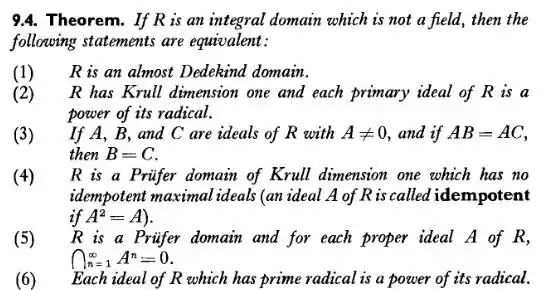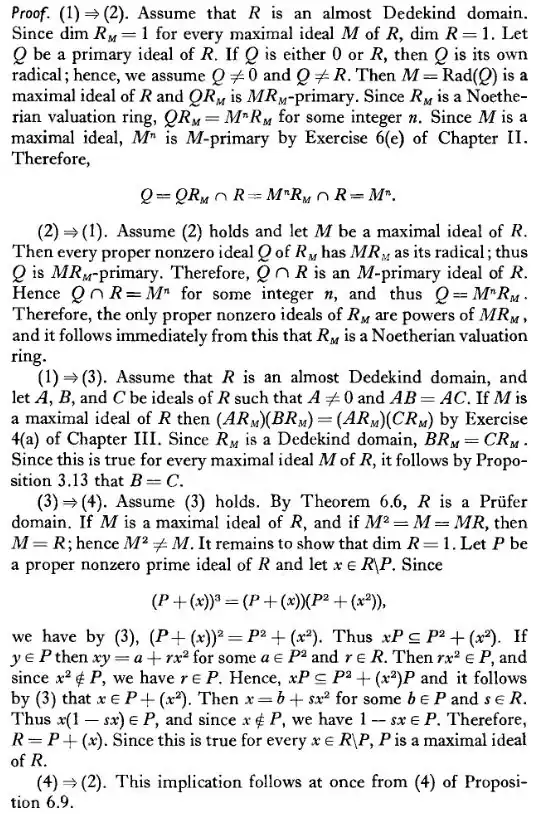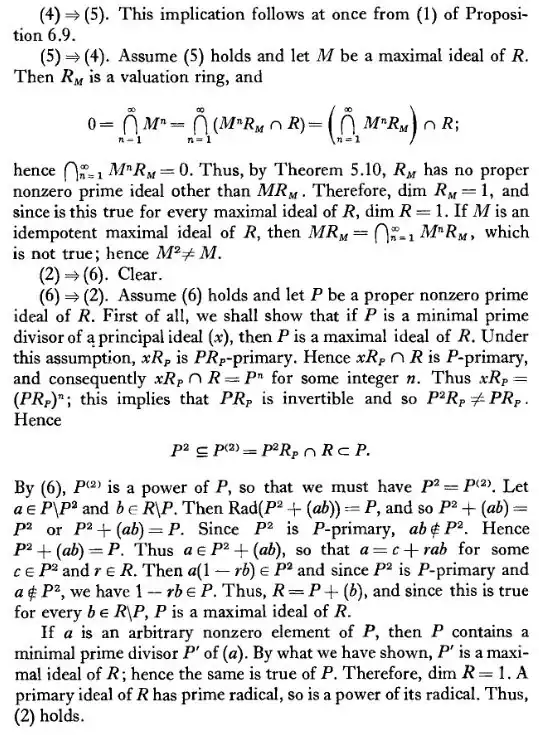Generally an ideal $\rm\:I\:$ of a commutative ring is cancellable, i.e. $\rm\: I\:J = I\:K\ \Rightarrow\ J = K\:,\:$ iff $\rm\:I\:$ is locally regular principal, i.e. in every localization at a maximal ideal the ideal $\rm\:I\:$ becomes a principal ideal generated by a non-zero-divisor. For a proof see Anderson and Roitman, A Characterization of Cancellation Ideals, PAMS, 1997. Domains where all nonzero ideals $\rm\:I\ne 0\:$ are cancellable are known as almost Dedekind domains. Below are some well-known equivalent characterizations from Larsen and McCarthy, Multiplicative Theory of Ideals, 1971, who employ the equivalent definition that a domain is almost Dedekind if it is locally Dedekind, i.e. every localization at a a maximal ideal is Dedekind. Below, recall that a Prüfer domain is a domain where every finitely generated ideal $\ne 0$ is cancellable. Here are $\approx 30$ equivalent characterizations of Prüfer domains.





